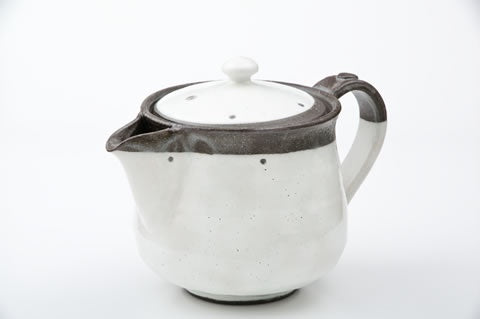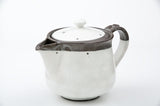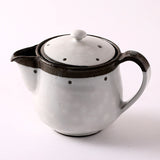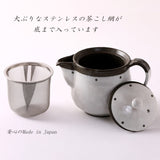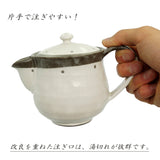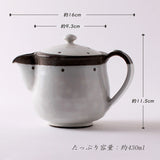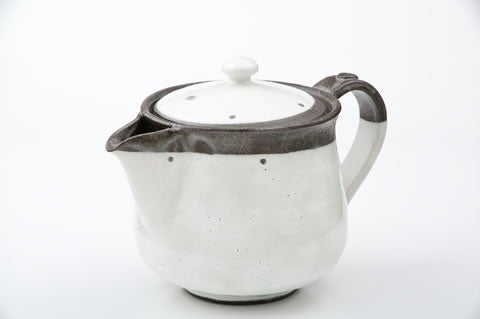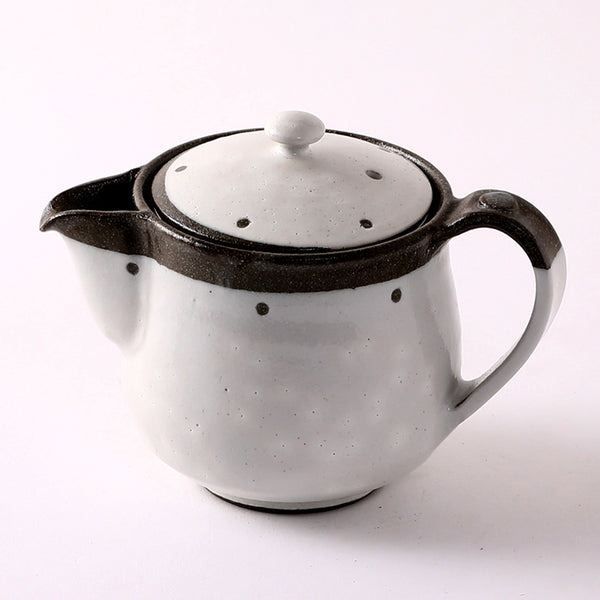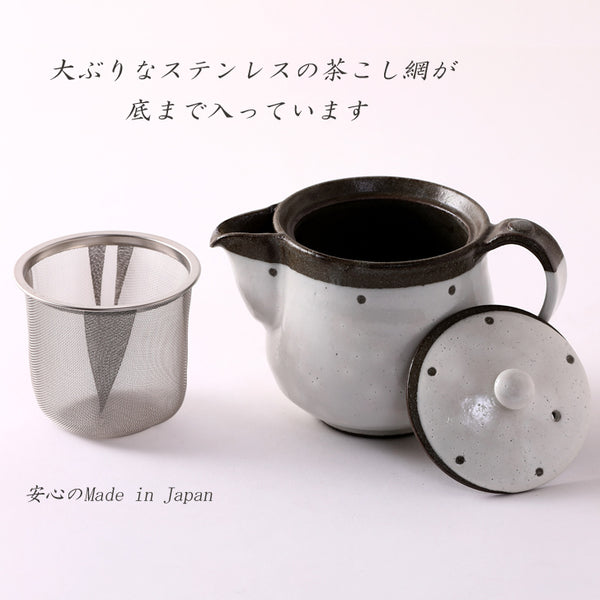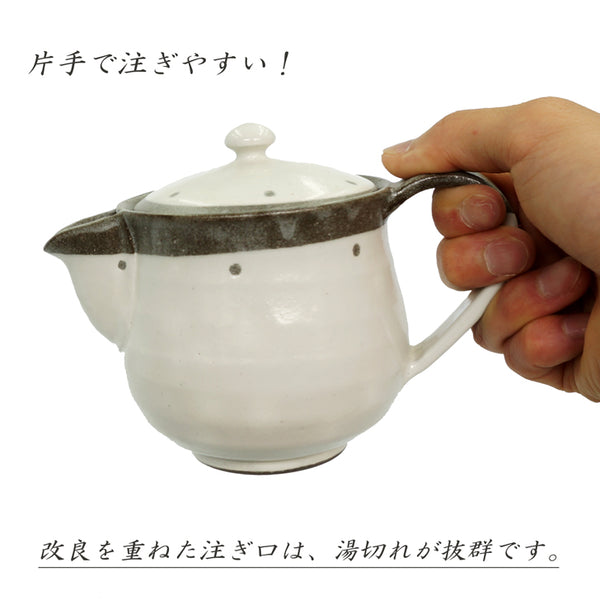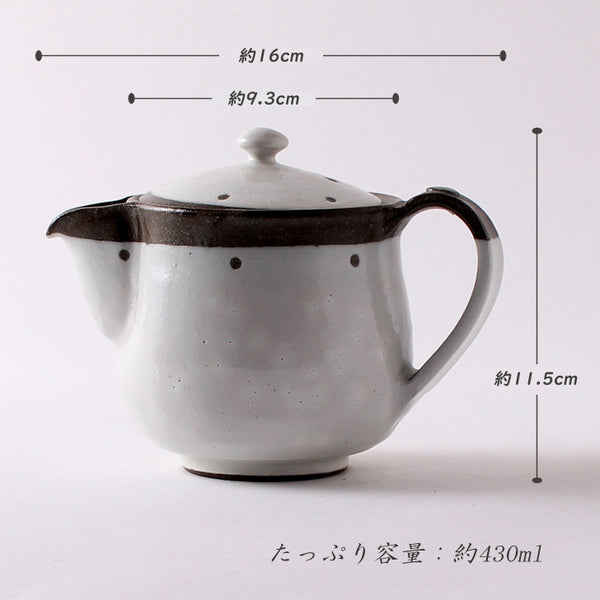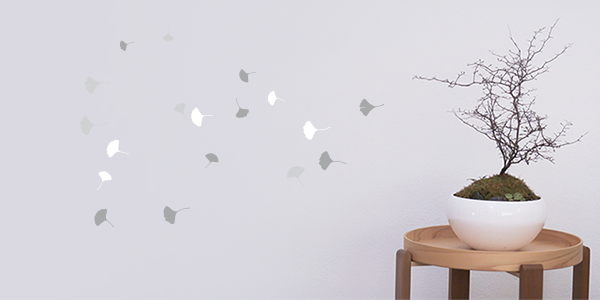Kohiki Glaze Teapot by Fudogama
Kohiki Glaze Teapot
This teapot has been made using the Kohiki practice which involves dipping the iron rich clay vessel into a white "slip" or suspension of clay in water, resulting a natural appearance. This slip is brushed-on this vessel, and the stroke patterns determine the final design. Across the surface runs subtle marks and specs, which is from the white glaze added over a iron rich clay, resulting in a beautiful, textured surface.. The rustic design and feeling of this teapot are a simple way to find and appreciate the subtle beauty and nuances in daily ritual process of preparing tea.
Size: D 9.3cm x H 11.5cm
Capacity: Approx. 430cc at 80% full
Material: Clay
Stainless steel strainer is included.
Made by Fudogama in Gifu, Japan
Remarks: Since each item is handmade, there may be slight differences in color, shape and thickness. The hand painted design of the vessels exemplifies the uniqueness of each piece. This is one of the characters of wabi-sabi.
Care Instructions
Not microwave or dishwasher safe.
Do use on direct heat or flame. Avoid any sharp temperature change on the product, as it could cause cracking.
Do not freeze the product, as it might crack.
Fudogama is a small family-owned studio, situated in Toki, the heart of historic Mino-yaki pottery area in Gifu Prefecture. One of the specialties of Fudogama is Oribe style Mino-yaki earthenware, characterized by its iconic deep green glaze.
Mino-yaki Earthenware and Oribe Style
Mino-yaki earthenware is specialty pottery produced in the Mino area of Gifu prefecture which began in the 7th century. Mino-yaki continues to adapt to modern lifestyles while preserving its history and tradition. One of the signature characteristics of Mino-yaki earthenware is its diversity. Mino-yaki does not adhere to a single form, as it has over 15 registered types of traditional handicraft in Japan. The best-known form is Oribe Ware, which was created by Oribe Furuta, a disciple of the influential tea ceremony master, Sen no Rikyu, at the beginning of the Edo Period in the 17th century.
Oribe Ware’s signature is its deep green glaze. The artists limit excessive decoration to express the identity of each product through beauty in simplicity. Fudogama aims to create pieces that embody both grace and boldness through their color and design.

